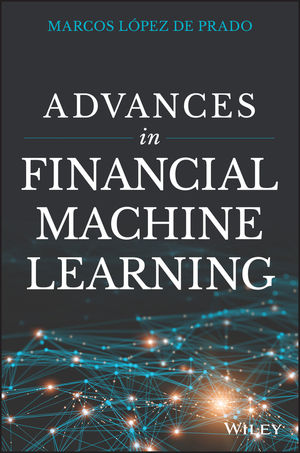All the experimental answers for exercises from Advances in Financial Machine Learning by Dr Marcos López de Prado.
This book (A collection of research papers) can teach you necessary quant skills, the exercises provided in the book is a great way to ensure you will have a solid understanding of implementating quantitative strategy. From "A" to "Z".
At the same time, you might want to know that this is one of the graduate textbooks used in Cornell University for their Msc programe.
"Every successful investment strategy is always supported by an equally sound theory that is practical, you either prove with results or you prove the theory first.
Either way one will always lead to another."
— "Project Cauldrons"
The book itself teaches very rational methods to quantitative finance, most of the concepts (especially triple barriers/ bet sizing) can be cross-reference to other strategies types (not just mean-reversion) such as volatilities, trends.
If you decide to write the code from scratch (Highly recommend!) and use my notebook answers as a reference, you will need the below:
- Python 3.7.4
- numpy 1.17.3
- scipy 1.3.1
- numba 0.49.1
- pandas 1.0.3
- matplotlib 3.1.1
- sklearn 0.23.1
- statsmodels 0.10.1
Disclaimer
Apart from the above modules, all the codes ran in these notebook were written from scratch (Private Repository).
Note
If you are interested in quantitative research, but do not have high-frequency data. I created code snippets for you to generate some synthetic HFT data to get you started.
Generate synthetic high frequency data
Note
Please take note that, most of the codes were written from scratch while the remaining codes were from references provided by dr Marco.
Hence the codes that were used to produce the answers are considered proprietary property.
The idea of maintaining an open-source quant library is too daunting for me (Especially when everything was done from scratch independently), however there are code snippets and explainations provided to assist individuals who are interested in learning Financial ML.
Note
Strongly encourage every potential quants to "star" this repository instead of "forking" them, since I might include updates and/or other algorithm implementations. This research repository will always be open-source and FOC (Free-of-charge).
At the end of the day, my answers is only reference. Most of the heavy lifting must still be done by interested individuals.
In between, I wll drop technical advices so that it will be easy to implement in later versions of Python and the related modules.
My answer or/ and explanantion might not be perfect. So let me know if you think there are better ways to improve them.
Note
Most of the Python codes in the textbook were written 2 years ago (Python 2.7), which might not work in 2020. Therefore, it is required for individuals to understand Python and the research process/ intentions as well as the Mathematical concepts to produce the algorithm.
Advice/ Encouragement
Don't give up. Good things will happen eventually.
May not be as good as expected but it would still be somewhere close.

